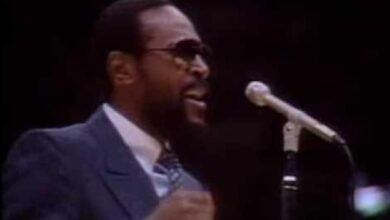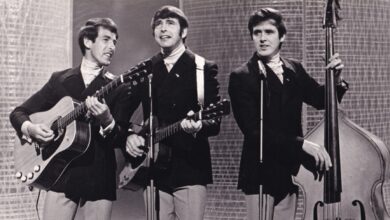Brooks & Dunn’s “You’re Gonna Miss Me When I’m Gone” Brings Heartache to the Top of the Charts in 1995
In June 1995, Brooks & Dunn released a song that would prove to be one of the most emotionally resonant singles of their career. “You’re Gonna Miss Me When I’m Gone,” a mid-tempo ballad tinged with regret and quiet resolve, struck a chord with listeners across the country. It quickly rose to the top of the Billboard Hot Country Singles & Tracks chart, becoming the duo’s 11th No. 1 hit and affirming their status as the kings of ’90s country heartbreak. While many of their previous singles leaned into honky-tonk energy or boot-stomping swagger, this track slowed things down—and in doing so, delivered something even more powerful.
Brooks & Dunn had already built an impressive legacy by the time this single was released. Kix Brooks, from Shreveport, Louisiana, and Ronnie Dunn, from Coleman, Texas, were both solo artists before Arista Records paired them in 1990. What followed was one of the most successful duos in country music history. Known for their perfect blend of honky-tonk rhythm and emotional balladry, their chemistry allowed them to alternate vocal duties seamlessly. For this track, it was Kix Brooks who stepped into the lead role—a rarity in their catalog, but a choice that would prove crucial in shaping the song’s impact.
“You’re Gonna Miss Me When I’m Gone” was penned by hit songwriters Kix Brooks, Don Cook, and Ronnie Dunn themselves. Unlike some of their other rowdy anthems, this song emerged from a more introspective space. It explored the slow realization that sometimes, the end of a relationship comes not with a shout, but with a whisper. It’s a man quietly walking away from someone who never quite realized what she had—until it’s too late. The simplicity of the lyrics mirrored the emotional truth: that absence can be louder than presence.
The recording was handled with restraint and care. Produced by Don Cook and Scott Hendricks, the track avoided heavy studio gloss in favor of a cleaner, more organic sound. Acoustic guitar set the emotional tone, while steel guitar and soft percussion framed the message in classic country tradition. Brooks’s vocal was understated but deeply felt—more conversational than theatrical. There was no need for dramatic delivery; the heartbreak lay in the honesty. It was this very subtlety that made the performance unforgettable.
When the song hit radio in the summer of 1995, it immediately connected with audiences. Within weeks, it climbed the country charts, eventually reaching No. 1. It remained on the chart for a total of 20 weeks, holding its own against the booming lineup of mid-’90s country megahits. Critics praised the track for its maturity, noting how it marked a departure from the duo’s usual high-octane offerings. Fans, meanwhile, embraced its melancholy tone, often calling it one of the most relatable songs in Brooks & Dunn’s catalog.
More than just a commercial success, the song contributed to a subtle shift in country radio during the mid-’90s. It showed that emotional vulnerability could sit comfortably beside the beer-soaked bar anthems dominating the airwaves. It invited listeners—especially male listeners—to reflect on regret, loss, and the pain of being taken for granted. In a genre where bravado was often the default, this track encouraged introspection.
The impact of the song on Brooks & Dunn’s career was significant. Though Ronnie Dunn had long been recognized as the duo’s primary vocalist, this track reminded fans that Kix Brooks brought his own emotional depth to the partnership. It diversified their sound and gave them another layer of authenticity. Kix’s vocal performance opened the door for future tracks that explored softer, more thoughtful themes—something that would become more common as their catalog evolved.
The song’s influence extended beyond the duo. Its success demonstrated to other artists and producers that country listeners had an appetite for songs that weren’t afraid to slow down and get personal. It reinforced a storytelling tradition rooted in realism—one where leaving someone isn’t about slamming doors, but about silent goodbyes and the heavy air that follows.
Over the years, “You’re Gonna Miss Me When I’m Gone” has been revisited by fans and artists alike. In 2019, Brooks & Dunn re-recorded the track as part of their Reboot project, inviting rising star Ashley McBryde to join them on a new version. McBryde, known for her emotional depth and gritty vocal style, added a fresh dimension to the song, trading verses with Kix in a rendition that felt both nostalgic and newly relevant. The updated version introduced the song to a new generation while staying true to its original spirit.
At the time of the song’s release, the country music world was entering a more polished, pop-influenced era. Yet this track stood its ground, serving as a reminder of the genre’s roots in heartache and honesty. It didn’t rely on trend or trick. Instead, it was built on timeless themes—longing, loss, and the inevitable sting of hindsight.
Today, the song remains a staple in Brooks & Dunn’s live shows and a fan favorite on classic country playlists. It continues to receive steady airplay, not just as a nostalgic throwback but as a reminder of how powerful simplicity can be. It may not be their flashiest song, but it endures because it speaks plainly—and truthfully—to something everyone eventually understands.
“You’re Gonna Miss Me When I’m Gone” didn’t redefine country music, but it reinforced its emotional center. In a career filled with high points, this ballad remains one of the duo’s most quietly devastating and deeply respected entries. It stands as proof that sometimes, the softest goodbye makes the loudest echo. And for Brooks & Dunn, it’s a song that helped define their legacy—one quiet heartbreak at a time.



